Spotlight
Remember the Sabbath
Published
2 years agoon

By Michael Juntunen
Sabbath is from the Hebrew word Shabbat, which means to cease, desist, or rest. Most people familiar with the term Sabbath tie it to Sunday, our day of rest, when we take a day off work to enjoy time with the family, attend church, or “veg out” watching a football game.
However, God looks at the Sabbath as more than simply a day off work. We find in Exodus 20:8-11 that God established the Sabbath as a special day that we are to keep holy or set apart. Therefore, we are instructed to make the Sabbath different from other days and assign it greater importance. This passage also says that God blessed the Sabbath, indicating that there are some benefits that come to those who keep this special day.
Since God placed so much emphasis on the Sabbath, I wanted to explore the subject to see if I could gain a better understanding of it. I discovered some concepts about the Sabbath that have helped it become more meaningful to me, which I want to share with you.
First, the Sabbath is a matter of lordship.
God tied the Sabbath to His work of creation (Exodus 20:11). He made all of creation in six days, and on the seventh day He rested. Divine rest was a common idea in ancient literature. According to ancient tradition, when the work on their temple was completed, a deity’s rest was obtained, and they would inhabit the temple to take their place as lord to rule over and maintain order in their world.
Isaiah 66:1 (NKJV) says, “Thus says the Lord: ‘Heaven is My throne, and earth is My footstool. Where is the house that you will build Me? And where is the place of My rest?’” Could it be that the six days of creation represent God’s work in building His temple? The seventh day, then, would be the day in which He takes His place on His throne to rule and reign over His creation, establishing Himself as Lord over His Kingdom. Examples of this might be found in Exodus 40:34-38 and 1 Kings 8:10-11 when the work on the tabernacle and Temple of the Lord were completed. The cloud and glory of the Lord filled the buildings, and God came to “rest,” to take His place as Lord over the nation of Israel.
I believe, then, that God wants us to make the Sabbath distinct from any other day to provide an opportunity for us to pause from our regular activities to recognize Him as Creator. It also is a time when we can renew our commitment to Him and surrender our lives to His lordship, a time to allow our Creator God to fill our lives again with His glory and take up residence as our Sovereign Lord.
Second, the Sabbath is a matter of identity.
In Deuteronomy 5:12-15, we see that God connects the Sabbath to Israel’s deliverance from Egypt. When the Israelites were slaves in Egypt, their only responsibility was making bricks. Their value to Pharaoh was in their ability to make bricks. If they could no longer make bricks, they were no longer valuable. As a result of the exodus from Egypt, God delivered them from emotional bondage as well as physical bondage. By giving them a day of rest during which they no longer had to produce, God was saying that their value was not in what they did but in who they were – His people.
Today, we still tend to tie our value and identity to what we do. We work hard to gain approval from our parents, employers, or others whose opinions we value. We want to be productive so we can be seen as successful or at least competent. If we do not perform well or are not as productive as we think we should be, we see ourselves as failures and our value as a human being as diminished.
By giving us a Sabbath rest, God is providing us an opportunity to step back from our busyness and rest in Him. It is a time when we can allow God to speak to us and let us know that our identity is not based upon what we do, but rather on who we are. He values us even on days when we are not producing. God loves us, not because we do things for Him, but simply because we are His children.
Third, the Sabbath is a matter of freedom.
While the Israelites journeyed through the wilderness, God told Moses that He would provide them with manna from heaven every morning (Exodus 16:11-30). The people were to gather only enough manna each morning to feed themselves and their families for that day. They were to do this for six days, but on the seventh day they were not to gather manna for it was to be a Sabbath day. God promised them that on the sixth day they would be able to gather twice as much as on the other days, and they could keep it overnight without it becoming infested with maggots.
The same principle is found in Leviticus 25 when God introduced the Sabbath year and the Year of Jubilee. The Year of Jubilee, however, was declared not only a Sabbath year but also a year of liberty. During the fiftieth year, all lands or homes that were sold due to indebtedness were to be returned to the original owner, and anyone who was forced to sell themselves as a slave was to be released. This is a picture of God’s redemption and restoration of all things as He originally intended them to be.
Jesus tells us, “Come to Me, all who labor and are heavy laden, and I will give you rest. Take my yoke upon you and learn from Me, for I am gentle and lowly in heart, and you will find rest for your souls. For My yoke is easy, and my burden is light” (Matthew 11:28-30, NKJV). He is inviting all of us to stop laboring to please God through our “good works,” to stop working so hard to prove that we are valuable and to quit placing our security and survival on what we can do.
Throughout each of these passages, God stressed that obedience played an important part in receiving blessings, redemption, and freedom (Exodus 16:27-30; Leviticus 25:18-19). The introduction of the Sabbath seemed to be a test to see if God’s followers would trust Him enough to obey Him or if they would feel that their survival depended on what they could do. The writer of Hebrews illustrated this concept by attaching Sabbath rest to Israel’s faith and obedience. Believers are warned not to follow Israel’s example of rebellion against God’s Word. The author stated that because of their disobedience and lack of faith, Israel was not able to enter God’s rest (Hebrews 3:18-19; 4:2).
It is easy for us to be critical of Israel for their lack of faith. But if we are honest with ourselves, are we not guilty of the same thing? Won’t we find that instead of trusting God, we are relying on our own efforts for our provision, security, and survival? When we are confronted with our own financial giants, battling health issues, or facing any number of life’s problems, do we worry about how we are going to work things out? Are we afraid that we may not survive, or do we submit our problems to the Lord and rest in Him, trusting that He will lead us to the right solution?
Jesus tells us, “Come to Me, all who labor and are heavy laden, and I will give you rest. Take my yoke upon you and learn from Me, for I am gentle and lowly in heart, and you will find rest for your souls. For My yoke is easy, and my burden is light” (Matthew 11:28-30, NKJV). He is inviting all of us to stop laboring to please God through our “good works,” to stop working so hard to prove that we are valuable and to quit placing our security and survival on what we can do. Instead, He is asking us to put our faith in Him and follow His yoke (teachings). If we can learn to do that, we can rest – be free from worry and fear.
It is important to designate a day specifically for the Sabbath rest, but Sabbath is not limited to one day. For me, the Sabbath is a mindset that permeates every part of my life. The Sabbath means that I daily recognize God as my Creator and Lord, surrender to His lordship, and invite Him to establish His throne in my life. It also means that I don’t have to try to earn His love and favor by doing things for Him. I can rest in the knowledge that He values me because I am His child and my identity is wrapped in my relationship with Him, not in how much I produce or how successful I am.
As a result, Sabbath also means that I can obey God and follow His path for my life fully trusting that He will protect me and provide for all my needs. My security, success, or survival depends on Him and not on me. Therefore, I am free from worry, fear of failure, or the feeling that I must always perform well to prove my value. I can now rest in the assurance that I am His son, and He is well pleased with me. Sabbath means living in FREEDOM!
About the Author
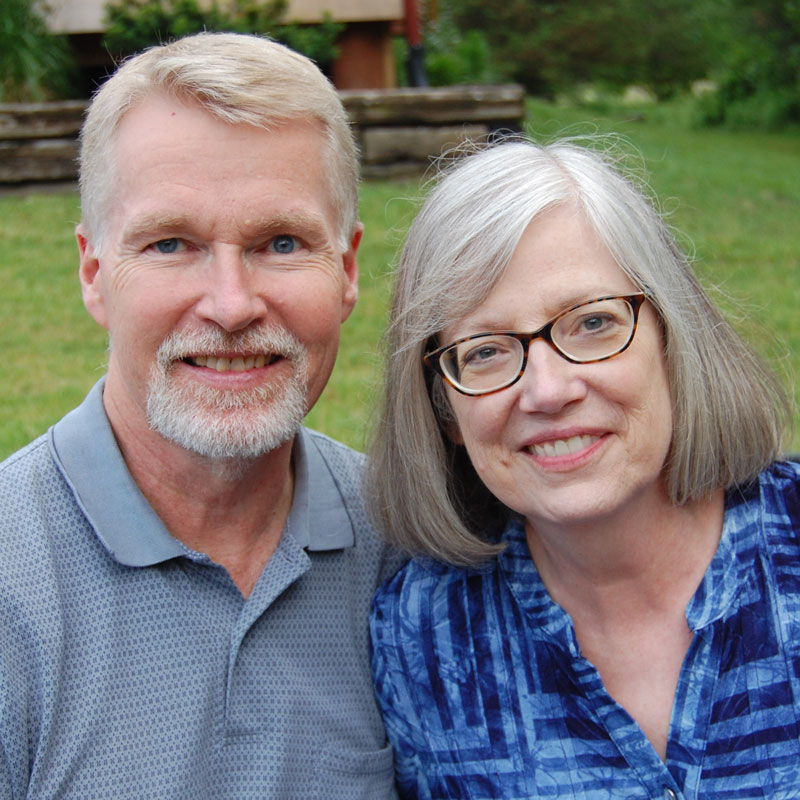
Mike and Nancy Juntunen pastored churches in the Central and Mountain Plains regions of Open Bible for over thirty years before going to the mission field. They were the directors of INSTE in Hungary for ten years and also assisted in the Open Bible Church in Gherla, Romania, for two years before coming back to the U.S. The Juntunens, currently serving as pastors of Church of the Open Bible in Hardin, Montana, have three grown sons and seven grandchildren.

Spiritual direction…hmmm, sounds like what I get from the Holy Spirit when I pray, so why would I need to meet with a spiritual director when I can do this on my own? Seems unnecessary, right? Not to mention, I’m a guy; we never ask for directions.
That was my thinking a few years ago, until the day I got a call from another minister who was training to be a spiritual director. She needed to log a certain number of practice hours to finish her training, and she asked if I would be her “guinea pig.”
The call had “coincidentally” come in the middle of a challenging season; my pastoral duties felt relentless, and I was going through a profound life change. I felt empty inside as I wrestled with a nagging question: “Am I really hearing God clearly?” Unable to talk through my struggle with very many people, I had been feeling spiritually stuck. The person calling was someone I trusted, so I agreed to be a part of her training process. I thought I was helping her out, but little did I know this decision would stand as a cornerstone of my spiritual and mental health moving forward.
Spiritual direction is like having a wonderful (dare I say, sacred) friend who walks alongside you and gently guides you to notice and respond to the presence of God in your life.
Spiritual direction is like having a wonderful (dare I say, sacred) friend who walks alongside you and gently guides you to notice and respond to the presence of God in your life. Believe it or not, even the best of us can miss Him in the middle of our emotional and mental upheavals. Unlike traditional counseling or mentorship, spiritual direction focuses on deepening our relationship with God, helping us become more aware of His presence in our everyday experiences.
A Transformative Encounter: Experiencing the Father Three Ways
There’s one spiritual direction session that particularly stands out in my mind. My mom had just passed away, and my dad was in the final stages of his life. It had been a tough year of loss, and I was doing my best to keep it together. As I shared with my spiritual director, she made a suggestion. She said, “Gary, take the next ten minutes to sit before the Father and ask Him what He wants to say to you in this season.”
I muted the microphone, sat in silence, and stared out the window of my office into my backyard. It was a beautiful day, and the wind was rustling through the trees. Things moving by some unseen force. As I sat there, God reminded me of three snapshots (memories) with my dad. The first was a memory of being at the beach with him when I was four and his taking me into the deep water. I remember protesting that I didn’t want to go out there but also feeling safe because I was held tightly in my father’s arms. The second was a memory of when I was twenty and we took a trip together. It was on that trip that I felt my father, through his actions, take his mantle of authority and leadership and place it on my shoulders. The third snapshot wasn’t a true memory but a glimpse into the future. I was about to visit my dad in a month – it was to say goodbye as he was in the final stages of life on earth. My agenda was simple: I was just going to spend time with Dad.
In those pictures, with the wind blowing through the trees, the Father used my father to help me encounter Him. I’ll never forget the three things God whispered to me as I pondered those three snapshots:
Gary, I’m with you; you’re safe.
Gary, I’ve given you everything you need to fulfill what I’ve called you to do; I trust you.
Gary, all I desire is for you to spend time with me and enjoy my presence.
Those past and future joys were a reminder from my heavenly Father that I could take the path ahead because He was with me. I’m not sure I would have had such a profound experience had it not been for the preceding conversation with my spiritual director and our subsequent debrief.
Integrating Spiritual Direction into Pastoral Ministry
Moments in this and following sessions have been a game changer for me, helping me become a better leader and follower. I now approach decisions with a greater sense of grounding, choosing to rely on prayerful discernment and feedback from someone who’s spiritually mature and not emotionally tied to the situations. I’ve also learned to listen better, not just to God but also to people.
Spiritual direction has been a transformative experience for me, helping me grow both personally and professionally.
Spiritual direction has also been a huge help with my mental health. Regular sessions provide a sanctuary from the incessant demands of ministry and allow me to process those stressors in a safe context. I’ve learned to be more resilient, thanks to the reflective exploration of my spiritual journey, and I feel more balanced and purposeful.
If you’re a minister who hasn’t tried spiritual direction yet, I highly recommend it. Here are a few things to keep in mind:
- Find a spiritual director who’s trained to help others on their spiritual journey.
- Make sure you prioritize regular meetings. Consistent engagement allows for a deeper unfolding of your spiritual narrative and allows for sustained growth.
- Be open and vulnerable. Don’t be afraid to talk about the good and bad parts of your spiritual life.
Spiritual direction has been a transformative experience for me, helping me grow both personally and professionally. Remember, we all need help sometimes.
About the Author

Gary Kahn
Gary Khan was born on the island of Trinidad in the Caribbean. He moved to America when he was twenty to pursue his education and calling to be a pastor. He met his wife DeLaine at Eugene Bible College (now New Hope Christian College) and upon their graduation, they were married and began working at Desert Streams Church in Santa Clarita, CA. After thirty-two years as a pastor, Gary became an Executive Director of Operations for Marketplace Chaplains. He is the author of devotionals including Reset and Greater and his most recent book, That Didn’t Turn Out the Way I Thought.

On the fifth day of creation, our wonderful God showed himself in a brand new way. He began to create the living creatures that walk among us. This expression of His creation has shown itself throughout history; from Noah’s dove, to Balaam’s donkey, to Jonah’s whale and Daniel’s lions, God has continued to use animals in His grand plan and purpose.
We can still use these animals as a metaphor for God’s love and guidance. One notable example comes from Bob Sjogren’s book Cat and Dog Theology: “A dog says, ‘You pet me, you feed me, you shelter me, you love me, you must be God.’ A cat says, ‘You pet me, you feed me, you shelter me, you love me, I must be God.’”
As true as this may be, something wonderful happens when the molds break.
[God] certainly doesn’t want to drag us from one destination to the next. He would rather we follow Him willingly, eager to remain in His presence.
In our family, we recently experienced an interesting phenomenon when it came to our pets. To understand the story better, you need to understand our animals. Ralphie is our young, spirited Maltipoo. He has never met a stranger he didn’t love. He is sweet, loyal and in many ways the ideal companion.
Then we have our chihuahua, Sally. We found Sally roaming our neighborhood in 2014 with no tags and no microchip. She had obviously been mistreated, and when I took her to the vet, they found so many things wrong with her that I was advised, “Don’t be in a huge hurry to find her owner.”
We cleaned Sally up, and two weeks later she was legally ours. While she is affectionate to us and our kids, to this day, if I lift my hand to give her a pat on the head, she winces as if I am going to hit her (something I have never done and never intend to do).
Ralphie and Sally’s unique natures show themselves on our nightly walk around the neighborhood.
Ralphie tries his hardest to pull on the leash and run ahead. He so desperately wants to lead whoever is holding the leash that he nearly chokes himself on his collar. (We’ve had to switch to a harness.) He is unaware that he is only eight pounds, and his actions make little to no difference in the direction we are going.
Sally, however, must be practically dragged throughout the walk. She is timid and afraid to take a step that she isn’t sure is safe.
It’s quite a sight to have such different dogs reacting to the same thing.
Witnessing this phenomenon gave me pause, and I couldn’t help but think what a picture this is for the diverse ways we respond to the Holy Spirit’s leading in our lives.
So many people are like Ralphie. They try to tell God where they want to go without any regard to His guidance. They would rather choke themselves on their own will than listen to what He has to say. Others are like Sally and struggle to fully trust the Lord. For them to move, the Holy Spirit must practically drag them to the next place.
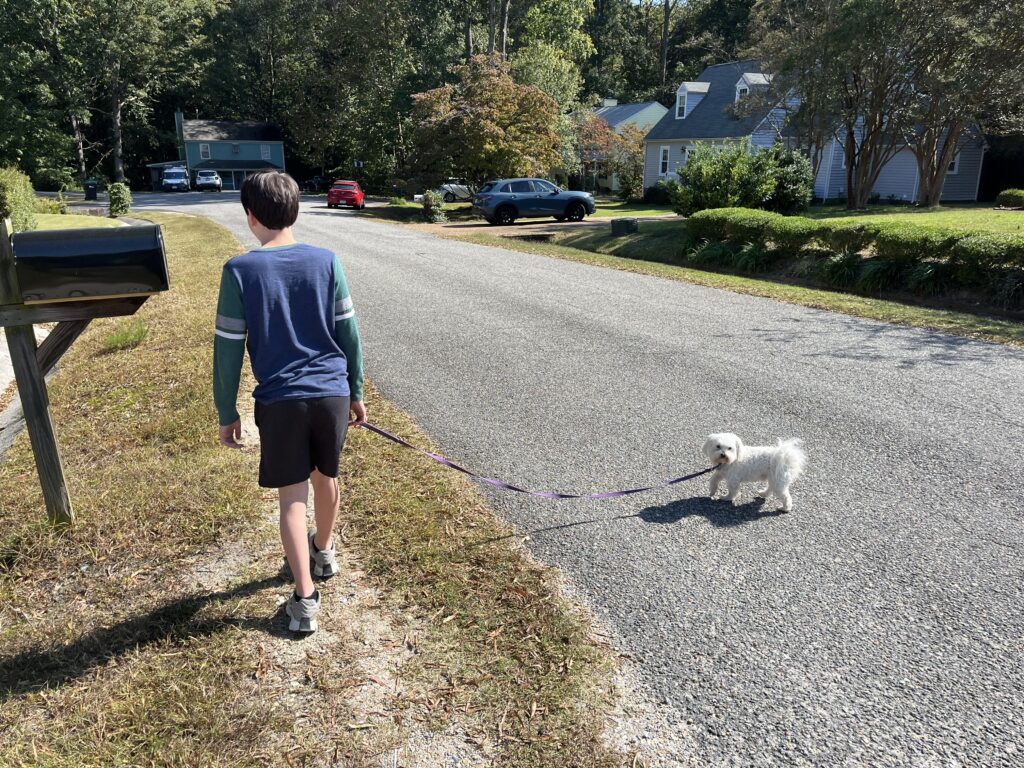
It sounds like a simple premise, but so many followers of God fall into these two opposite extremes. People miss their destinies when they act like Ralphie and Sally.
But there is another pet in our household whom I have not told you about. His name is Caesar, and he is an old, wise cat. We got Caesar the year we were married, and he lived up to his noble name every chance he got. Years ago, on our nightly walks with the dogs, Caesar began doing something amazing.
By his own free will, he would simply follow us on our walks. No need for a leash. No need for us to coax him. He just followed our gentle guidance every night for the mere purpose of being with us. Every now and then we would have to call his name, but he was always nearby.
I believe that in a world full of Ralphies and Sallys, God would rather we be like Caesar. The Lord doesn’t want us to tell Him where we are going rather than let Him lead, and He certainly doesn’t want to drag us from one destination to the next. He would rather we follow Him willingly, eager to remain in His presence.
In Matthew 8:18-22, two men express a desire to follow Jesus. The first is overly eager, not knowing what he is getting himself into. Jesus gives him a stern warning, explaining that he doesn’t know what he’s asking. The second man hesitates and says he needs to bury his father first. We never learn the fate of either man, but I hope they both abandoned their natural tendencies and learned to faithfully follow.
Whether you struggle with being too aggressive on your journey with God or whether you’re entirely too scared to take another step, I believe we can all grow in learning to be led
After sixteen years of being our cat, Caesar died peacefully this past March, but not before we had gotten a kitten named CJ. CJ is full of life and extremely playful. She was always so intrigued by our old friend Caesar that she started following him everywhere he went, even if it meant a walk around our neighborhood.
Caesar indirectly made a disciple with our young kitten, who now follows us on our walks every night. Despite how aggressive Ralphie wants to be or how timid Sally is, we now have CJ, just following along wherever we go.
Whether you struggle with being too aggressive on your journey with God or whether you’re entirely too scared to take another step, I believe we can all grow in learning to be led. If we will stay close to Jesus, we cannot help but fulfill His destiny for our lives.
About the Author
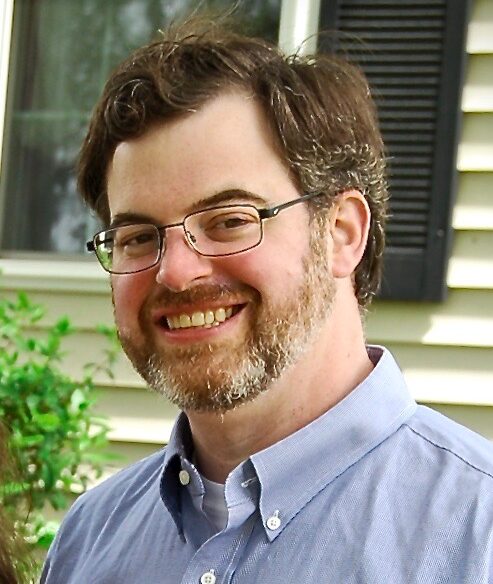
Bill Francavilla
Bill Francavilla is the lead pastor at Living Hope, an Open Bible church in Williamsburg, Virginia. Having lived in Virginia nearly his entire life, he attended Lynchburg College, where he studied history and theater. In 2017 Bill received his master’s degree in theological studies from Liberty University. He has been active in missions to Mexico, Dominican Republic, and Cuba. He and his wife, Jessica, have four children: Alex, Liam, Rita Grace, and Gino.

I am Shane Blackledge, and my wife Amber and I are the founding pastors of Cultivate Church in St. Louis, Missouri. My story is one of transformation and God’s grace, showing how He can use anyone to build His kingdom.

I was born in Colorado at the Air Force Academy Hospital. My father served in the Vietnam War, and while stationed in Taiwan, he met my mother and they got married. When I was six, my parents separated, and my mother moved back to Taiwan, leaving me devastated. As a kid, I faced racism and extreme poverty. I battled depression, anxiety, and thoughts of suicide. I started smoking and drinking at eight years old, joined a gang at age thirteen, and was using meth daily by the time I was fourteen.
At age seventeen, I was arrested and sentenced to thirty years in prison for selling drugs. I found myself in my jail cell wanting to end it all. On my night stand I found a Gideon Bible, and I opened it right to John 3:16. As I sat there reading, I realized I was a sinner, but that God created me and I had a purpose to live. I repented and asked Jesus to forgive me. I felt the Father’s love and the presence of the Holy Spirit in an indescribable way.
After my release, I struggled transitioning back into society (finding a job, paying rent, and finding a church that would accept me). I was discouraged and soon relapsed on meth. During the years of my addiction, I was sent to five prisons and was incarcerated for over six years. In 2006, after nearly dying from an overdose, I woke up from a coma and realized God had saved me from death. That day I fully surrendered to Christ, and that’s when my real transformation began.
In 2006, after nearly dying from an overdose, I woke up from a coma and realized God had saved me from death
God restored what addiction had taken from me. I have now been clean from meth for seventeen years. In 2013, I married Amber. We started attending Waverly Life Church, served as youth leaders, and eventually started a Celebrate Recovery program. In 2022, God called us to plant Cultivate Church in St. Louis, Missouri. We resigned from all ministries and jobs and sold our home. In April of 2023, we started house church gatherings which quickly grew in Christ and numbers. We launched our first Sunday gathering in October of 2023.
Today, we are a church without walls, modeled after the early church in Acts. We have regular church gatherings geared towards discipleship, street ministry, addiction recovery, Christian hip-hop events, prison ministry, and nursing home visits. We work with local treatment centers and recovery programs to support and mentor people. We have partnered with churches and ministries to organize monthly inner-city mission trips.
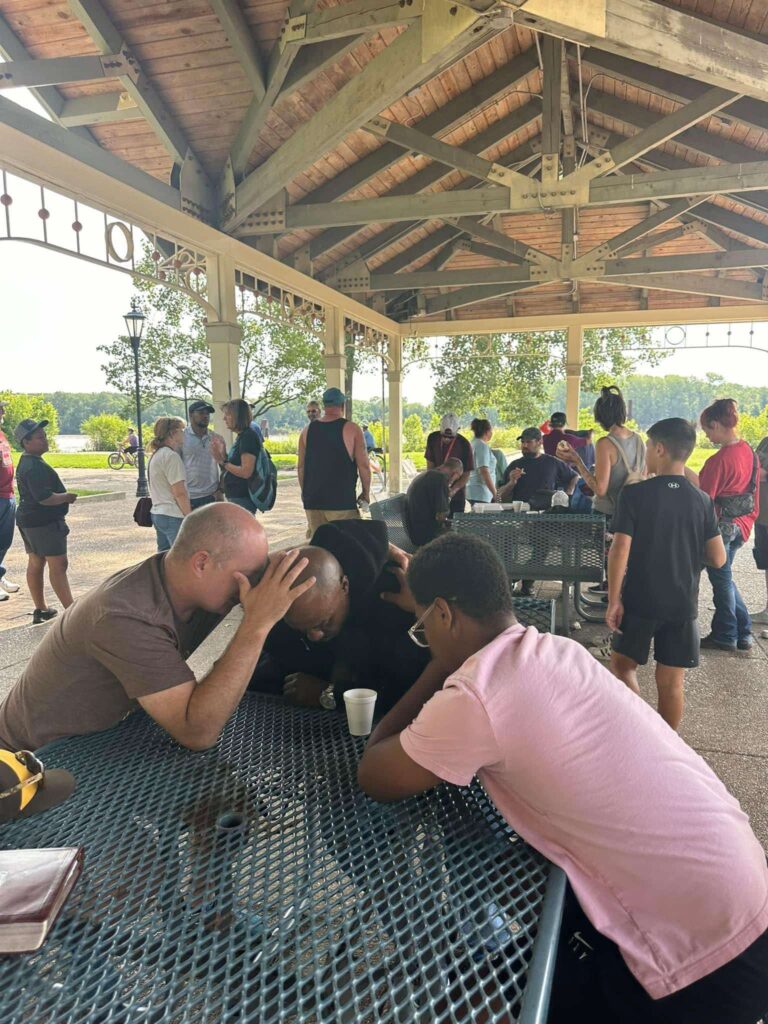
One way God has used my story is with my podcast: “Kingdom Minded,” which streams into 1000 prisons across the country on over one million inmate tablets. In partnership with the Edovo learning app, the podcast focuses on sharing testimonies and teaching Biblical principles.
Looking back, I am amazed at what God has done. In just a year our church has grown from a small group in our living room to a thriving community, passionate about sharing God’s love. Amber and I are excited about the future. We believe God is just getting started with Cultivate Church.
He can use anyone, even a former addict and convict like me, to build His kingdom.
My story and the story of Cultivate Church are really about God’s faithfulness. He can use anyone, even a former addict and convict like me, to build His kingdom. All the glory goes to Him.
To donate toward our prison ministry and homeless outreach, visit wearecultivatechurch.org or check out our Blessing Bags Gift Registry at HERE.
About the Author
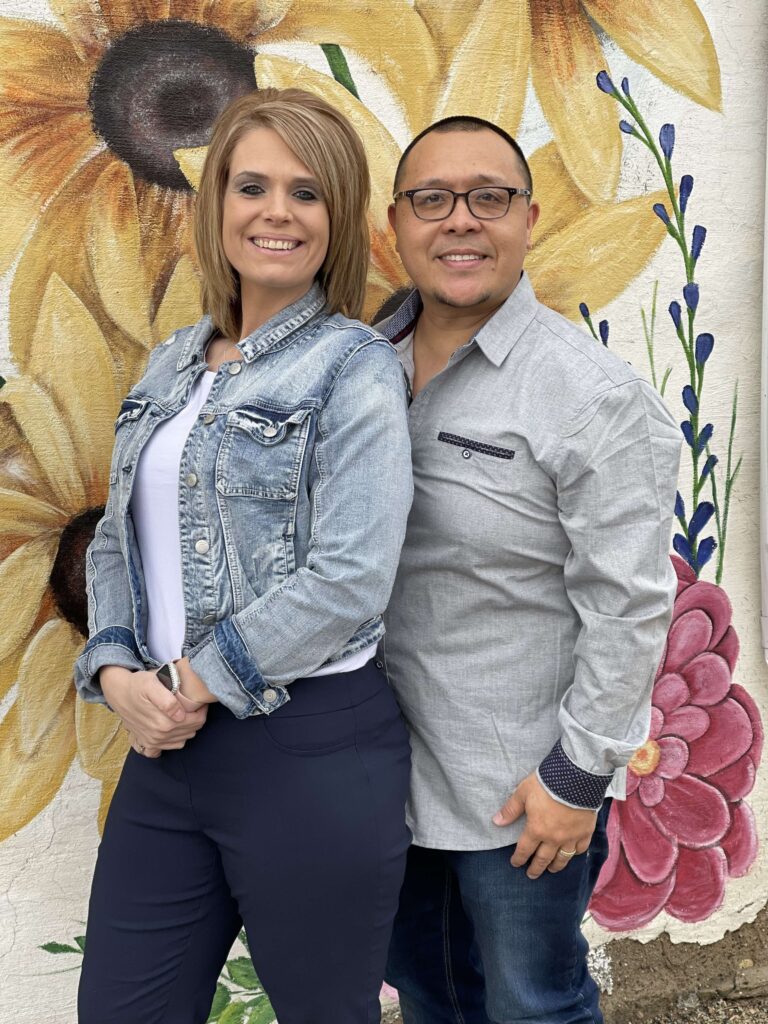
Shane R. Blackledge
Shane R. Blackledge is the co-founder and senior pastor of Cultivate Church. He and his wife Amber started Cultivate Church in their home in 2023. Today, the church is known for spreading the Gospel and being the church without walls. Shane’s podcast, “Kingdom Minded,” is available in over 1000 prisons on inmate tablets on the Edovo Learning App. Through testimonies and Bible principles, the podcast aims to teach, inspire, and equip Christians to live their best life now. Shane is an author and speaker, and his books From Prison to Purpose and Overcoming Codependency are available on Amazon. Shane and Amber have four children and live in St. Louis, Missouri.







